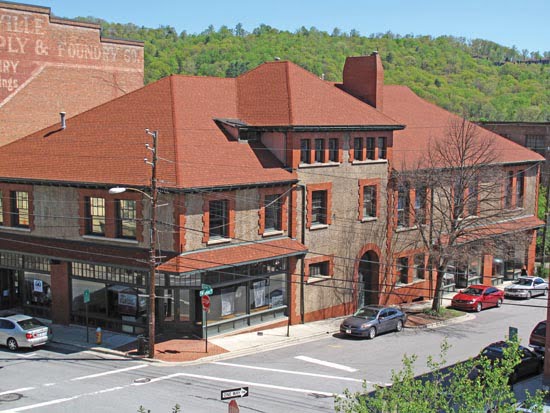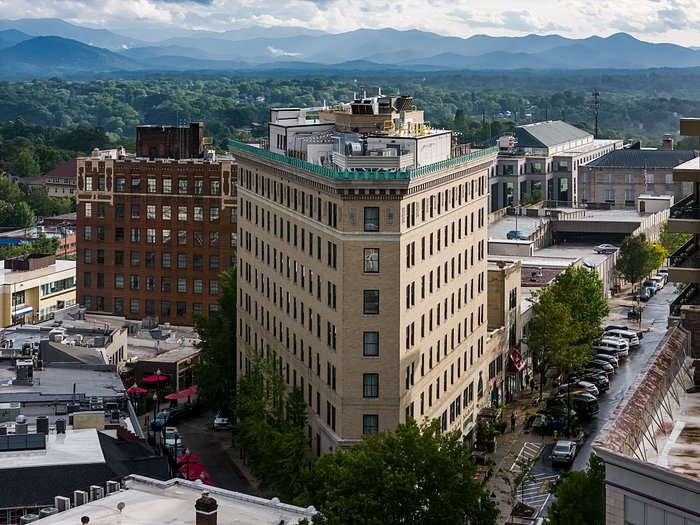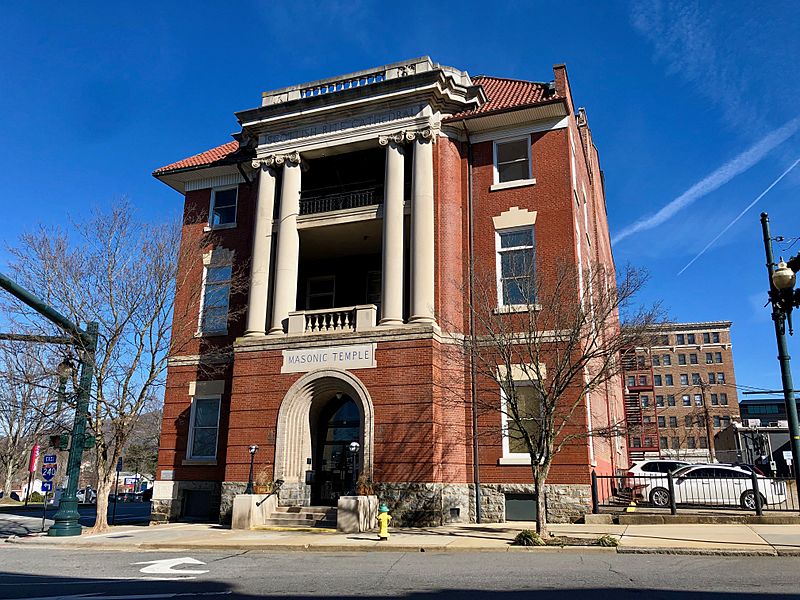
National Historic Properties Redevelopment Programs (HPRP) Summit
National Historic Properties Redevelopment Programs Summit
April 30 – May 2, 2025
Asheville, North Carolina
Gather in Downtown Asheville, North Carolina, with colleagues from across the country engaged in historic property redevelopment work (a.k.a. revolving funds). This Summit will bring together non-profit practitioners and national experts to exchange ideas, learn about best practices, explore new models and identify sources of funding.
The National HPRP Summit is a presented in partnership with the 1772 Foundation
and National Trust Community Investment Corporation.
Register for the National HPRP Summit HERE.
HPRP Summit Registration: $300
Registration for HPRP Summit (April 30 – May 2) AND NPPN Spring Retreat (April 28-30): $500
Early Bird Registration Ended April 14th
Conference Hotel: Kimpton Hotel Arras
Book Your Hotel Room Here.
National HPRP Summit Schedule
Wednesday, April 30
Celebration Reception for NPPN Spring Retreat and HPRP Summit Attendees
5:30 p.m. – 7:30 p.m.
YMI Cultural Center – 39 S. Market Street

Thursday, May 1st
The Flat Iron Hotel – 20 Battery Park Avenue

9:00 a.m. – 9:30 a.m.
Check-In and Breakfast
9:30 a.m. – 10:30 a.m.
Opening Session
Real Estate is the Name of the Game: History and Evolution of Revolving Funds / Historic Properties Redevelopment Programs
Myrick Howard, President Emeritus, Preservation North Carolina
For decades, direct real estate work with historic properties (whether one calls it a Revolving Fund or a Historic Properties Redevelopment Fund) has been one of the most effective and enabling programs for preservation organizations and the communities where they are active. Much more important than having a large pot of money is having a working knowledge of available real estate tools and the long-term organizational commitment to solve preservation problems through direct property work. This session will review how revolving funds work and how they have transformed many of our favorite places.
10:30 a.m. – 11:45 a.m.
Getting To Know You: Attendee Introductions
Overview of Historic Properties Redevelopment Program Models
11:45 a.m. – Noon
Break
12 Noon – 1:00 p.m.
Lunch – Keynote Speaker – Ethiel Garlington, Executive Director of The 1772 Foundation
Ethiel Garlington, Executive Director of The 1772 Foundation, will speak to the unique strength and versatility of HPRPs, highlighting the alignment with both market-based tools and nonprofit advantages to maximize community impact. As 1772 works to “advance preservation,” the real estate work of organizations continues to be a dynamic way to save and reuse more historic buildings.
1:00 p.m. – 2:00 p.m. Breakout Sessions
Real Estate is the Name of the Game Part 2: HPRP Programs 101
- Myrick Howard, President Emeritus of Preservation North Carolina
This session will build off Myrick Howard’s morning presentation to address how your preservation organization can engage more effectively with real estate. What tools could you use in your community to make preservation an active force for economic development and housing availability? This session will be a deeper dive into direct property work.
Homeowner Repair Grant Programs
- Danielle Del Sol, Executive Director – Preservation Resource Center of New Orleans
The PRC’s Revival Grants program provides free home repairs to low-to-moderate income residents living in New Orleans’ historic neighborhoods. While the PRC advocates for the city to keep historic district regulations strong to protect architecture, many residents struggle with upkeep costs, and are largely avoided by other service nonprofits since construction costs are higher for historically appropriate repairs. The program has been so successful since its inception in 2019 that the PRC has replicated it twice, creating two new grant programs with new partners, who are also funders: the City of New Orleans, and the New Orleans Jazz and Heritage Foundation. From insurance liability to historic materials to media portrayal of the beneficiaries, every aspect of this program required careful threading of a needle. PRC Executive Director Danielle Del Sol will describe the program, the considerations that went into building it, and how other cities could replicate the model.
Preservation Grants – Jessie Landl, Executive Director – Preservation Society of Asheville & Buncombe County
In 2019, PSABC began awarding Preservation Grants of $500 – $5000 in three categories: Bricks-and-Mortar, Public Education and Planning, Survey and Designation. Since that time, they have awarded nearly $500,000 including $275,000 in Hurricane Helene specific grants. Jessie will share the challenges and successes of this program and how we think a program like this can work for other organizations.
2:00 p.m. – 3:00 p.m. – Breakout Sessions
Neighborhood Revitalization Strategies
- Nathan Lott, Executive Director of the Historic Macon Foundation
What does it take to breathe new life into a disinvested neighborhood? Repairing historic buildings is only part of the puzzle. Using Macon, Georgia, as a case study, this session explores the key factors of placemaking, financing, strategic partnerships and community building. Participants will discuss the role of traditional preservation tools — local districts, tax credits and easements — alongside other incentives, blight remediation strategies and anti-displacement measures.
Bringing Capital to Close Financing Gaps for Real Estate Deals That Need Doing
- Will Bradshaw, Co-Founder, CEO of Reimagine Development Partners
In 1994, there were over 13,000 banks in the United States. In the first quarter of 2024, there were about 4,500. As 75% of our banking institutions were consolidated and closed, too many communities lost one of their chief partners for reinvestment. This lack of local lenders is emblematic of the larger problem of disinvestment. For too many communities, financial opportunity has dimmed or gone out entirely. Reimagine Development Partners is dedicated to turning those lights back on. While still very young and very small, their initial products are designed to address disinvestment and provide historic tax credit equity for adaptive reuse deals, usually under $10 million in total development cost. They are dedicated to supporting projects that need doing but have fallen through the financial cracks.
3:00 p.m. – 3:30 p.m. – Networking Break
3:30 p.m. – 4:30 p.m. – Breakout Sessions
Preserving New York City’s Historic Structures, One Loan at a Time
- James J. Mahoney, Director, New York City Historic Properties Fund – New York Landmarks Conservancy
The Conservancy’s Historic Properties Fund was established in 1982 to assist property owners restore their historic structures through an unusual program that provides loans to individuals, nonprofit and religious organizations, and investment property owners. The program has provided loans for restoration work on numerous rowhouses in Central Brooklyn and Harlem as well as a Gothic Revival-style cottage in the Bronx, a National Historic Landmark Church in Brooklyn, Italianate mansions in Staten Island, and a Tugboat. The session will focus on program outreach, eligibility, the loan process and case studies of a number of restoration projects the program has financed.
Sustainable Stewardship of Historic Properties Through Heritage Tourism
- Susan McMahon, Executive Director of The Landmark Trust USA
- Laura Houston, Director of Revitalization Initiatives for Preservation Maryland
The Landmark Trust USA was established in 1991 by the British Landmark Trust for the express purpose of bringing new life to heritage buildings. This is accomplished through short-term vacation rentals, educational opportunities and public open house events. Landmark’s particular brand of stewardship has proven an effective way to offer an enlightened and personal experience in buildings of architectural and historical significance. Landmark’s philosophy of sustainable stewardship relies on the income from short-term vacation rentals to provide sufficient cash flow to cover costs related to the long term maintenance and management of each property. This ensures that the historic property is protected for future generations. This approach to historic preservation is proven by Landmark Trusts in England, Ireland, and the United States.
4:30 p.m. – 5:30 p.m.
Featured Speakers: Manny Rodriguez & Megan Lydon – Revolution Workshop
5:30 p.m.
Dinner on Your Own
Friday – May 2nd
Asheville Masonic Temple – 80 Broadway Street

8:30 a.m. – 9:30 a.m.
Breakfast Available
9:00 a.m. – 10:00 a.m.
Featured Speaker: “Catalyzing Economic and Cultural Rebirth: A Research-Based Framework for Community-Led Equitable Development in Houston’s Freedmen’s Town”
Zion Escobar, Founder and CEO of the Freedmen’s Town Community Investment Initiative
This presentation will examine how the Freedmen’s Town Community Investment Initiative (FTCII) is partnering with Rice University’s Kinder Institute to evaluate institutional responses that historically marginalized communities have implemented to address challenges of gentrification and obsolescence. We’ll explore how various market-based and community-oriented frameworks have generated outcomes around preservation, affordability, and community wealth-building. Our research aims to understand how restorative justice has been addressed through these different models and how we can apply these lessons to create sustainable solutions for Freedmen’s Town’s future.
10:00 a.m. – 11:00 a.m. – Breakout Sessions
Utilizing HTCs and NMTCs in Historic Properties Redevelopment
- Kandi Bryant Jackson, Managing Director, Historic and New Market Tax Credits – National Trust Community Investment Corporation
Providing Loans to Move Commercial Preservation Projects Forward
- Suzanne Germann, Director of Reinvestment for Landmarks Illinois – Reinvestment Program
Learn about the re-creation of Landmark’s Reinvestment Loan Fund, which supports economic development in historically disinvested neighborhoods on Chicago’s South and West Sides.
11:00 a.m. – 12 noon – Breakout Sessions
Utilizing Preservation Easements with HPRP Projects
- Benjamin Briggs, President of Preservation North Carolina
- Jack Newton, Senior Manager of Community Development for GBX Group
- Jessie Landl, Executive Director of the Preservation Society of Asheville and Buncombe County
Historic Tax Credits for Main Street – Opportunities and Challenges for Redevelopment
- Elizabeth Rosin, Senior Vice President, Business Strategy for Heritage Consulting Group
- Laura Turner, CPA, Partner, Cherry Bekaert Advisory LLC
An overview of the federal and state historic tax credit process and how those incentives can be leveraged to support rehabilitation projects. This session will also cover the challenges Main Street properties can face (i.e. small size that can be difficult to attract outside equity/investor, non-profit ownership, etc.), and secrets for a successful project.
Noon – 1:00 p.m.
Lunch Program – Lessons Learned: Working to Prevent Community Displacement in Anacostia
Lauren McHale, President of The L’Enfant Trust
In 2013, The L’Enfant Trust initiated its HPRP in Anacostia, a historically African-American neighborhood in Washington, D.C., deeply impacted by decades of disinvestment. The Trust’s President will highlight the program’s achievements and challenges in addressing displacement, emphasizing the importance of community engagement, strategic partnerships, and grassroots efforts.
1:00 p.m. – 2 p.m. – Breakout Sessions
Community Land Trusts: An Innovative Way of Thinking about Preservation
Learn about the community land trust model and look at how it’s been used in practice to achieve historic preservation outcomes in ways that serve low-to-moderate income households and communities.
Energy Retrofits for Historic Properties
- Jim Lindberg, Vice President of Research and Policy at the National Trust for Historic Preservation
Learn about the National Trust’s new work to develop energy retrofit guidance for historic homeowners as well as strategies to align key preservation and climate policies. The session will include an overview of these initiatives, followed by discussion to gather ideas and suggestions from partners.
2:00 p.m. – 2:15 p.m.
Break
2:15 p.m. – 3:00 p.m.
Q&A and Discussion
3:00 p.m. – 5:00 p.m.
Trolley Tour of Local Projects
5:30 p.m. – 8:00 p.m.
Closing Reception: Montreat Home of Mark McDonald – President & CEO (Retired) of the Georgia Trust for Historic Preservation
- Roundtrip transportation to Montreat included


